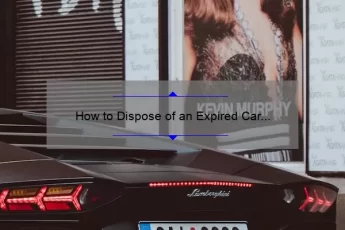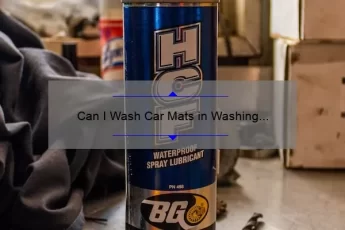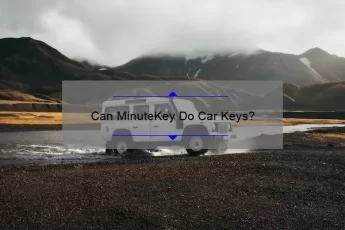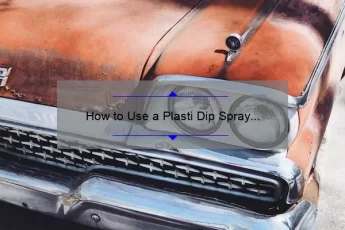You might be wondering: can you wrap a car with dents? Yes, you can. Vehicle wraps are designed to follow the contour of your car, so they will mask the dented appearance. This solution is especially great for vehicles that are difficult to paint, like SUVs.
Paintless dent repair
Paintless dent repair is a fast and effective solution for dents in your vehicle. Unlike traditional body shop methods, paintless dent repair doesn’t use fillers, which makes the procedure a more environmentally friendly and long-lasting choice. A trained technician will use specialized tools to push or pull the dent out. As they work, the area will shrink, eventually disappearing completely. The process is effective for small dents on the exterior of your vehicle.
Paintless dent repair is not the right solution for severe car dents, which can stretch the metal and cause it to crack. However, most car dent repairs are simple and inexpensive. However, you should not try this on your own if you don’t have any experience with auto dent repair. The technique relies on the memory of the metal, which means that you need to be skilled at applying the dent massage correctly.
Paintless dent repair is a popular alternative to traditional body shop methods. Because it doesn’t require filling the dent, it won’t affect the appearance of your vehicle’s finish. The method works well on various kinds of dents, including small dings and large dents.
Paintless dent repair is also more environmentally friendly, since it doesn’t use labor-intensive processes and chemicals. In fact, the tools and equipment used in paintless dent repair are reusable. This makes the process more environmentally friendly and more cost-effective. A paintless dent repair technician will also be able to work on difficult dents, so it’s important to choose a skilled professional for your car dent repairs.
Car dents can happen anytime. Paintless dent repair is the most economical method for repairing minor car dents. However, it is not appropriate for all types of dents.
Vinyl wraps
Car wraps are a great way to protect and change the appearance of your car while minimizing the cost of a new paint job. They also won’t damage your car’s paint, and they won’t leave a sticky residue once they’re removed. Just be sure to buy the right vinyl for your car before installing it.
First, you must remove the dents on your car. This can be done by sanding down the exterior. If the dents are deep or shallow, you can apply a layer of filler to them. Once this is done, you’ll be ready to apply the vinyl film to your car. If you have only a few small dents, you can even paint over them and apply a car wrap. This will make the dents look less obvious and make the car look new again.
Once the vinyl is applied, you need to trim the edges so that the material won’t rest on the paint. X-Acto knives are handy for trimming the edges. Use a steady hand and patience while doing this job. This process will take several hours but will make the car look like new!
When washing your car, make sure to use a gentle soap. Do not use a pressure washer. The water pressure and temperature should be low to prevent the wrap from getting damaged. Also, choose a wide-angle spray rather than a focused spray. When cleaning the vinyl, it’s best to use a soft cloth rather than a brush as a rough cloth may damage it. Clean up any spills immediately to avoid damaging the vinyl.
Body fillers
Body fillers are available in many forms, depending on the size and type of dent. Body fillers are made from plastic or metal, and bond with the affected area to restore it to its original shape and appearance. When using these products, it is essential to follow the manufacturer’s instructions carefully.
To apply body filler, you must first sand the affected area. Use a feather-edge sander to ensure that the mix adheres well to the paint surface. Next, work your way inward from the edges of the dent. When mixing the filler, be sure to use only the amount necessary for the repair. To avoid sanding through the new paint, place something underneath the dent to protect the surrounding paint.
Body filler comes in two parts: a creme hardener and a base filler. Both of these components harden within a few minutes. It is important to follow the manufacturer’s instructions on how to mix the materials. Most kits come with mixing boards and equipment to mix the filler. With practice, this process becomes easier. Once you have mastered the application technique, you should be able to use body filler on other surfaces as well.
After mixing the filler, apply it to the affected area quickly, but do not overdo it. The filler will crack and peel away from the bodywork if you apply it too thickly. If you need to repair a deeper dent, it is better to repair it with metal before filling it. To make the filler last longer, use a fiberglass-reinforced filler. These are more durable than ordinary water-resistant fillers, and have a better adhesion than the Bondo type.
Body filler is a popular option for small car dents. This substance is a common cosmetic repair solution, and can be used on dents, creases, and holes in the car. It is an effective way to repair dents and fill holes, but it is important to follow a step-by-step application guide for the best results.
Tarps
Tarps are a useful addition to your car protection arsenal. They protect your car from the elements and from prying eyes. You can purchase them online, or from a local NAPA AutoCare store. NAPA has 17,000 locations throughout the US and specializes in automotive repairs and maintenance.
While tarps work well to protect your car from the elements, they are abrasive and may cause damage to your vehicle. Additionally, tarps don’t fit the shape of your car very well. The lack of fit can allow dust and other materials to get trapped under the cover. They also may cause scratching on your vehicle. Also, tarps cannot prevent the sun’s rays, which can cause rust and other problems.
In addition to covering vehicles, tarps are also used to protect other items. Heavy-duty tarps are ideal for protecting RVs and boats from damage, while medium-duty tarps are best for short-term storage. They can also be used to protect objects from UV rays and moisture.
Tarps can also protect cars from hail damage. They don’t protect your car fully, but they can reduce the impact of large hailstones. Moving blankets can protect panels from hail, and a tarp can be placed over them. In addition to preventing dings and scratches, a tarp can reduce the size of hailstones that cause dents.
Cost of vehicle wraps
There are several ways to reduce the cost of vehicle wraps. While it is possible to DIY the process, you should be sure you have the proper experience and supplies to perform the job properly. Plus, you might end up spending more money on supplies than you originally planned. In addition, many companies offer discounts if you are a repeat customer or a referral. In addition, a partial wrap may save you money since less vinyl is required.
Vehicle wraps cost more than a custom paint job, but they are more affordable than you may think. Even if your car has dents and dings, you can still get an amazing wrap for your car. A car wrap can improve the resale and trade-in value of your car.
The cost of vehicle wraps for cars with dents can vary depending on the quality of the materials used. You may want to opt for a special effect vinyl if you want your car to look more unique and special. Some popular finishes include holographic, reflective, and glow-in-the-dark vinyl.
Choosing the right company to wrap your car is important because not all car wraps are created equal. It’s important to choose a professional for the job so that you get the best possible result. If you do it yourself, you can save up to $1000, but the final result will not be as good. And if you do it wrong, it can end up costing you more than you think.
The cost of vehicle wraps for cars with dents varies depending on the type of vinyl used, the size of the vehicle, and the complexity of the design. Typically, you’ll pay between $77 and $85 per square foot for a full vehicle wrap. Depending on the type of vehicle wraps you choose, it can last for up to eight years. If you choose the right vinyl and choose the right installer, you can expect it to look great for a long time.








